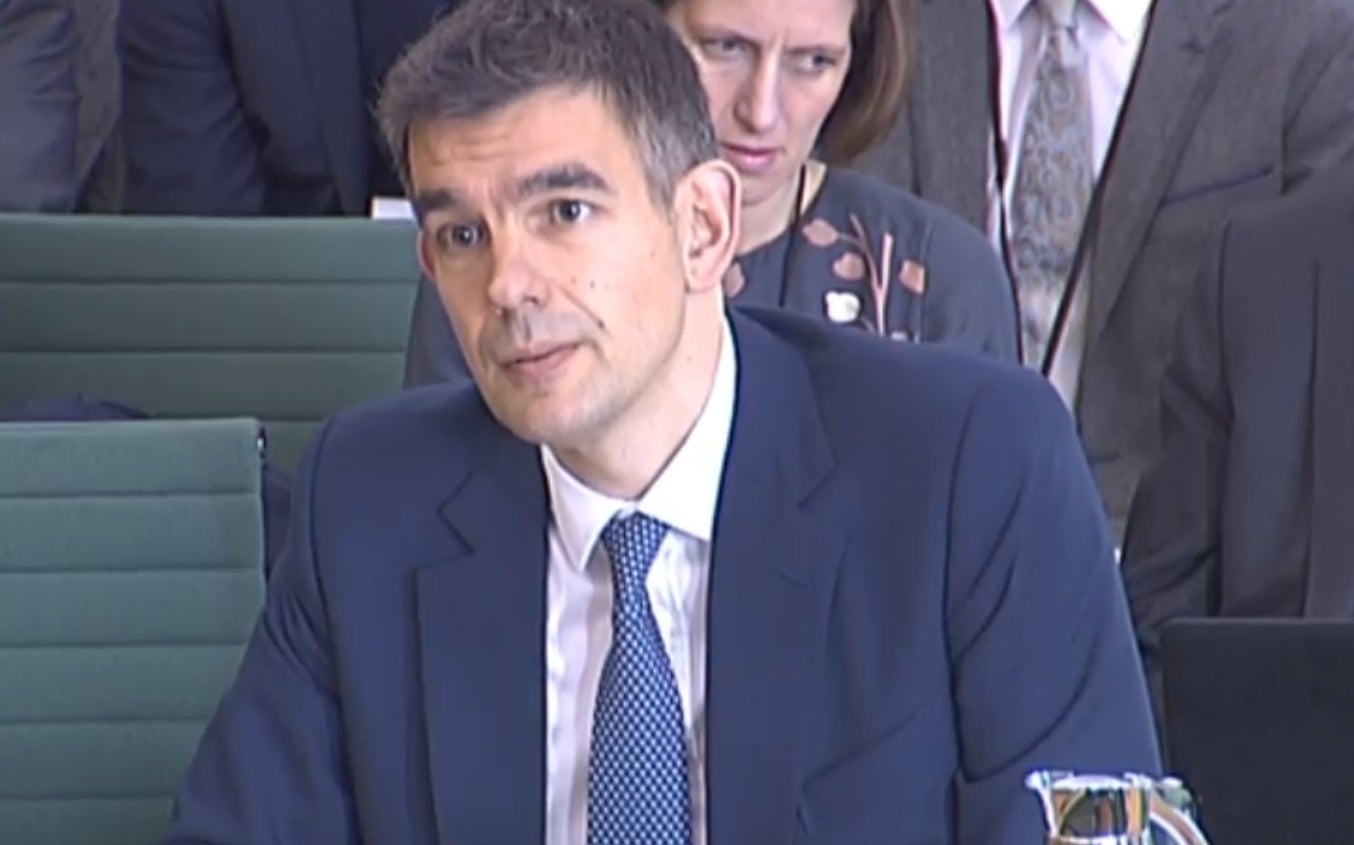Who cares about the salary of a Google exec? MPs demanding to know Matt Brittin's pay packet missed the point
MPs had the opportunity to seriously question Google this week after Osborne's notorious 'sweetheart deal' - but instead they choose to chortle about the size of Matt Brittin's salary

Your support helps us to tell the story
From reproductive rights to climate change to Big Tech, The Independent is on the ground when the story is developing. Whether it's investigating the financials of Elon Musk's pro-Trump PAC or producing our latest documentary, 'The A Word', which shines a light on the American women fighting for reproductive rights, we know how important it is to parse out the facts from the messaging.
At such a critical moment in US history, we need reporters on the ground. Your donation allows us to keep sending journalists to speak to both sides of the story.
The Independent is trusted by Americans across the entire political spectrum. And unlike many other quality news outlets, we choose not to lock Americans out of our reporting and analysis with paywalls. We believe quality journalism should be available to everyone, paid for by those who can afford it.
Your support makes all the difference.This week, the Public Accounts Committee called upon Google’s top execs, giving MPs the opportunity to coherently voice the outrage of UK’s taxpayers over the affectionately known ‘sweetheart deal’.
Although hailed a victory by George Osborne, the internet giant’s top brass faced questioning in light of the ‘derisory’ £130m settlement. While many tuned in to spot possible signs of Government collusion on the matter, I felt my anger rapidly fizzling into bemusement by the Committee’s tittering and combative approach.
The Committee’s Chair Meg Hillier began by asking Google’s Head of Europe, Matt Brittin, whether he shared the anger felt by her constituents, quickly followed by five tactless attempts to ascertain how much he earns.
Visibly puzzled, Brittin replied that he would detail his salary if it were deemed relevant. Predictably, the room then filled with the chortles of MPs delighted to see him squirming to avoid the question.
Of course, this question was never going to elicit the answer Hillier demanded. But wouldn’t it have just been a new reporter’s dream soundbite? On the same day junior doctors are told they’ll have a contract imposed upon him, the internet Leviathan’s Head of EMEA is earning an astronomical sum for his services – while the company pays barely any tax at all. What a brilliant bulletin that would have made.
Whilst the Committee continued to toy with Brittin, I was becoming less and less convinced that this was the probing investigation I had expected. Rather, it was an opportunity for MPs to mock the hypocrisy in Google’s ‘do no evil’ slogan. A chance to chuck in a laboriously rehearsed ‘taxing’ pun that even David Cameron would be ashamed of using in PMQs – one that ultimately solves nothing.
Despite the Google exec’s lack of remorse for taking advantage of porous and complex international tax laws, I ended up momentarily siding with Brittin throughout these impolite exchanges.
This is because there is something inherently tasteless about asking someone to disclose their salary. As children, we are rightly taught that financial worth isn’t indicative of a person’s character, nor is it particularly significant. It’s so entrenched by adulthood that we naturally distance ourselves from those at parties who break the ice by asking you what you do and subtly proposition whether there’s a ‘bit of money’ in your line of work later in the conversation.
Now, I am not suggesting we surrender investigations into aggressive tax avoidance out of social embarrassment and poor etiquette. But, what can be gained from knowing what we already know? The Head of EMEA at the world’s most innovative and ubiquitous tech firm will be earning extortionate money – of course he will.
He is a senior figure at an organisation which has developed technological innovations responsible for literally changing the world. His influence over Google’s tax arrangements is a matter of public interest - but the same cannot be said for his base salary, which neither incriminates him nor his employer.
I believed the Committee hearing would be a catalyst for discussion about the pursuit of ethical tax arrangements. One which ensures that guilty multinationals repay our economy for investing in their employees through education, healthcare and infrastructure, which has in some part contributed to Google’s £3.6bn UK revenue figure in 2015.
This futile salary-shaming and crass demagoguery was a particularly awkward episode demonstrating that we are light years away from constructive conversations with the very high-earning execs we must engage with in order to achieve the transparent tax system we desperately need.
Join our commenting forum
Join thought-provoking conversations, follow other Independent readers and see their replies
Comments